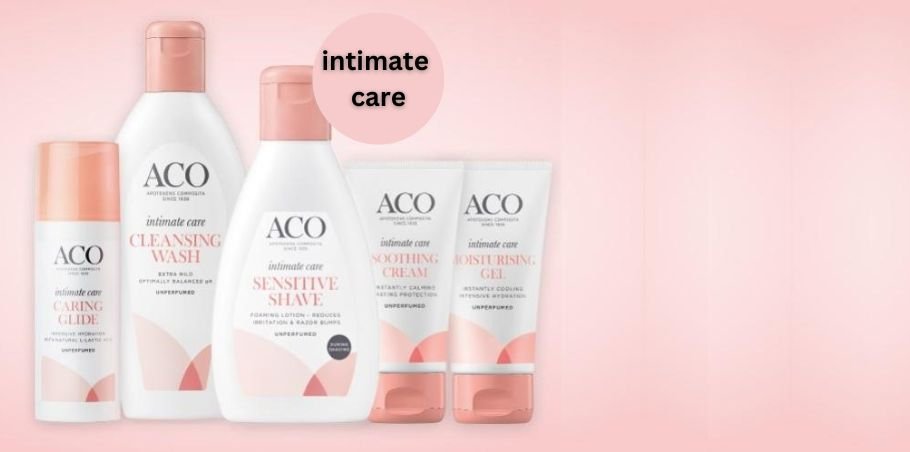Intimate care is often overlooked, but it plays a critical role in our daily health and hygiene routines. From personal hygiene to choosing the right products, intimate care encompasses a wide range of practices aimed at maintaining our intimate areas healthy, clean, and comfortable. Many people tend to avoid discussing intimate care due to embarrassment or misconceptions, but it’s vital to understand that proper care can lead to better health, prevent infections, and improve self-esteem.
What is Intimate Care?
Intimate care refers to the practices we engage in to clean, protect, and maintain the health of our intimate areas. These practices include cleaning the genital areas, maintaining a balanced pH level, and ensuring that the skin remains healthy. Intimate care doesn’t only refer to physical hygiene; it also includes mental well-being and confidence in one’s body.
Why is Intimate Care Essential?
Maintaining good intimate hygiene is important not just for cleanliness but also for preventing infections such as yeast infections, urinary tract infections (UTIs), and other uncomfortable conditions. A clean, well-maintained intimate area boosts confidence and comfort, allowing individuals to feel more relaxed and at ease in their daily life.
Personal Hygiene and Intimate Care
To ensure proper intimate hygiene, it’s essential to clean the genital area gently with lukewarm water. Using harsh soaps, douches, or scented products can disrupt the natural balance of bacteria and pH levels, which can lead to irritation or infections. For daily care, it’s best to avoid strong fragrances, and instead, opt for mild, fragrance-free soaps specifically designed for intimate hygiene.
Choosing the Right Products for Intimate Care
When selecting products for intimate care, it’s important to choose those that are specifically designed for the sensitive skin in the genital area. Opt for products that are free from artificial fragrances, dyes, and harsh chemicals. Ingredients like aloe Vera, chamomile, and calendula are known for their soothing and calming properties. Also, there are eco-friendly products available, such as organic cotton pads and tampons, which are better for both your body and the environment.
The Impact of Menstrual Cycle on Intimate Care
During menstruation, intimate hygiene becomes even more crucial. Using breathable, cotton underwear and changing menstrual products regularly helps maintain hygiene and reduce the risk of infections. Additionally, using gentle wipes or intimate washes during menstruation can help prevent discomfort and odor.
Intimate Care for Sensitive Skin
If you have sensitive skin, extra care should be taken in selecting products. Fragrance-free, hypoallergenic products are best for avoiding irritation. When cleaning the genital area, avoid scrubbing or using abrasive materials, as this can cause discomfort or damage the skin. Always listen to your body and discontinue use of any product that causes irritation.
Men’s Intimate Care what You Need to Know
Men’s intimate hygiene is just as important as women’s, although the approach might differ slightly. Men should focus on keeping the penis and scrotum clean and dry. Washing with lukewarm water and mild soap, followed by thorough drying, can help prevent infections like jock itch. Circumcised or uncircumcised men may require different approaches to care, but the key is to maintain hygiene without disrupting natural moisture levels.
Maintaining Intimate Health during Pregnancy
During pregnancy, the body undergoes significant hormonal changes that can impact intimate health. Increased vaginal discharge and changes in pH balance may make women more susceptible to infections. It’s important to practice gentle, regular cleaning and consult a healthcare provider if any unusual symptoms arise.
Intimate Care in Older Age
As we age, our intimate health may change due to reduced estrogen levels, which can lead to vaginal dryness and thinning of tissues. Postmenopausal women should use lubricants to ease discomfort and consider opting for products designed to restore moisture and support intimate health. It’s important to maintain a routine of gentle hygiene practices to prevent infections or irritation.
Common Intimate Care Problems and How to Address Them
Vaginal dryness, irritation, and infections are common issues that many face. Vaginal dryness can be alleviated with lubricants, while irritation may be addressed by choosing gentler products. Infections, such as yeast infections or UTIs, can often be prevented by practicing good hygiene and wearing breathable underwear. If you experience discomfort, it’s always best to consult a healthcare provider.
Preventing Common Intimate Health Issues
The best way to prevent intimate health issues is by practicing good hygiene, wearing breathable clothing, and avoiding harsh chemicals or fragrances. Staying hydrated, eating a balanced diet, and taking probiotics may also help support the body’s natural balance and boost immunity, further preventing infections.
The Psychological Aspect of Intimate Care
Intimate care isn’t just about hygiene – it also affects mental well-being. Feeling comfortable and confident in one’s body can lead to improved self-esteem. Unfortunately, stigma and societal pressures often lead to shame surrounding intimate care, especially for women. It’s essential to normalize conversations about intimate health and create an open dialogue about its importance.
Intimate Care for Men and Women a Holistic Approach
Both men and women require intimate care, and while the approaches may differ, the overall goal is the same: to maintain hygiene, prevent infections, and support confidence. Emphasizing a holistic approach – one that includes both physical and mental health – can help individuals feel more empowered in their intimate care practices.
Conclusion
Intimate care is an essential part of our overall well-being, impacting not just our physical health but our mental and emotional health as well. Practicing proper hygiene, choosing the right products, and staying informed about changes in our bodies can lead to improved health and comfort. Remember, intimate care is a personal journey, and it’s important to find what works best for you.










